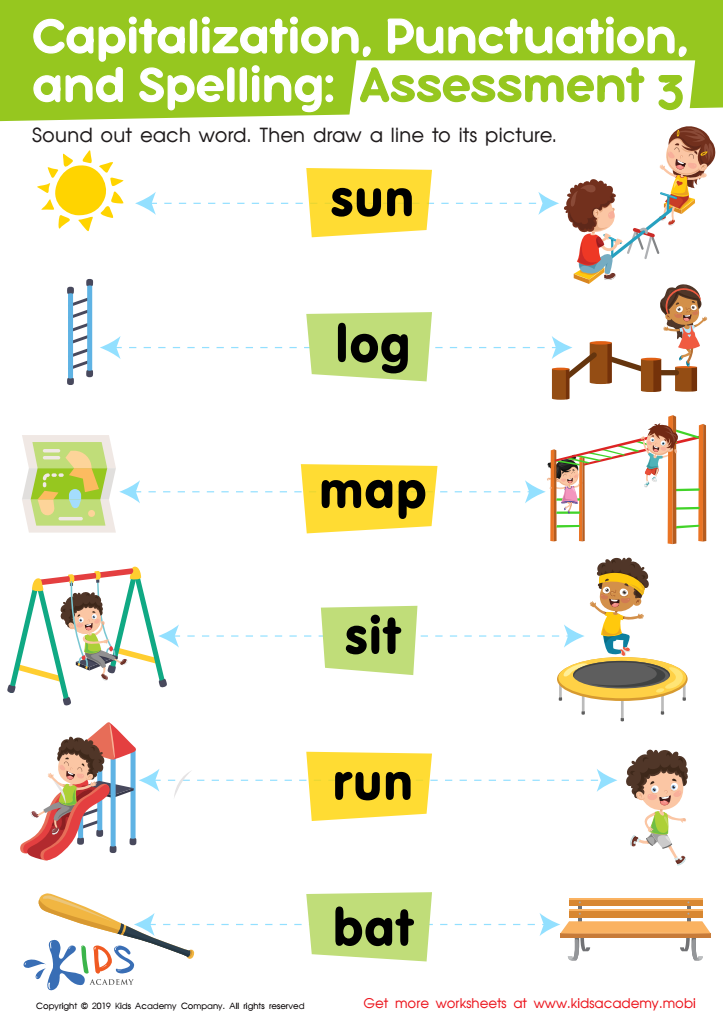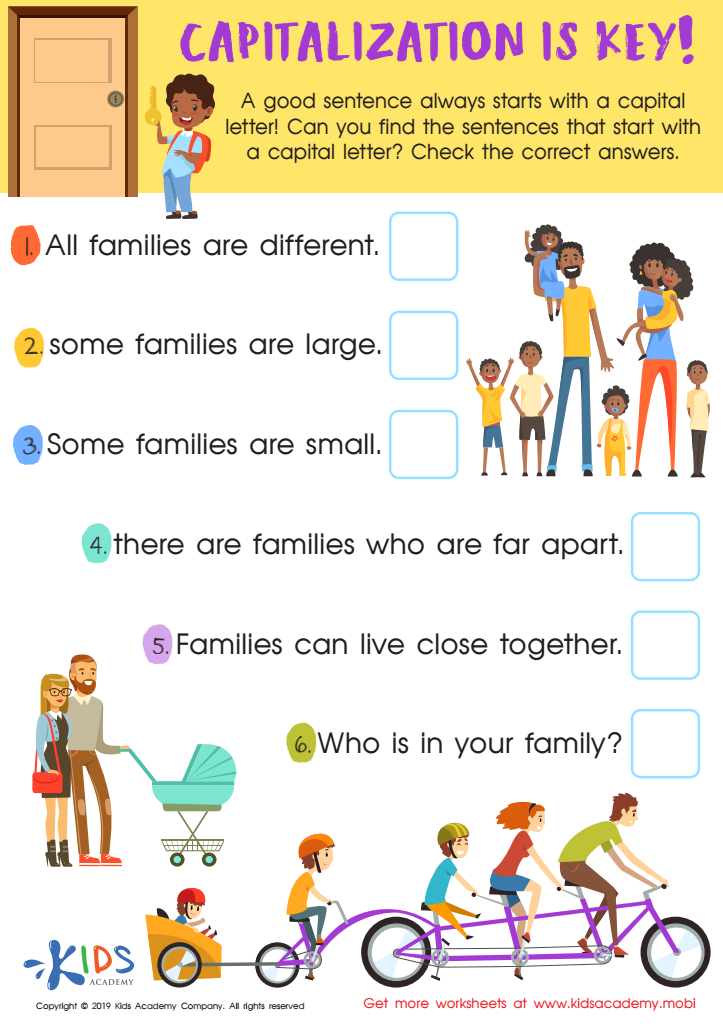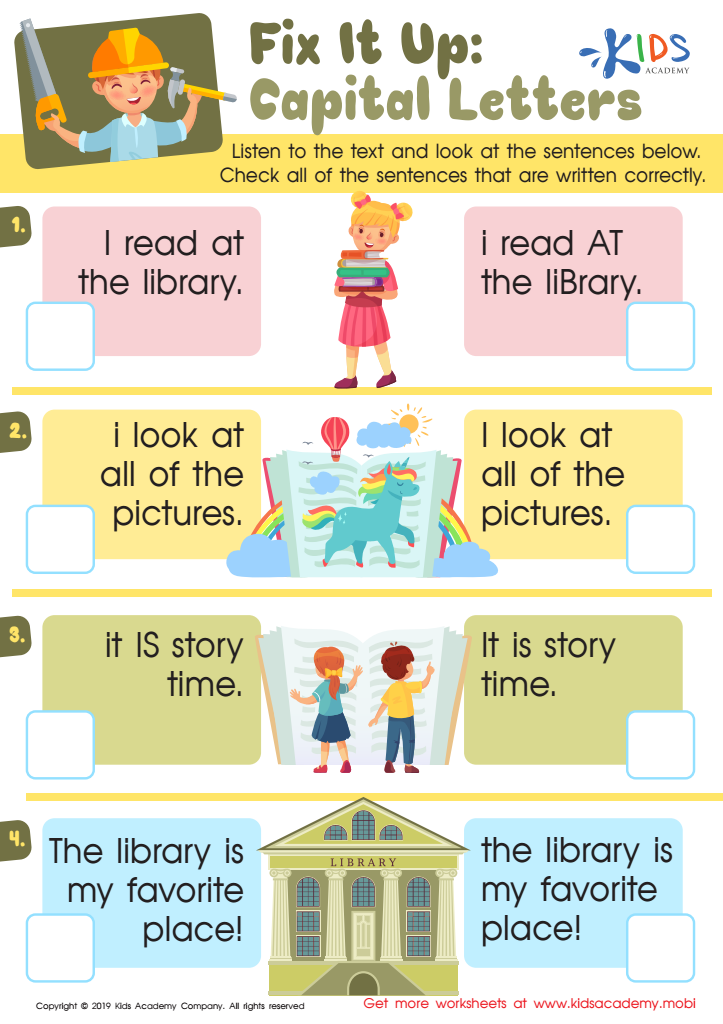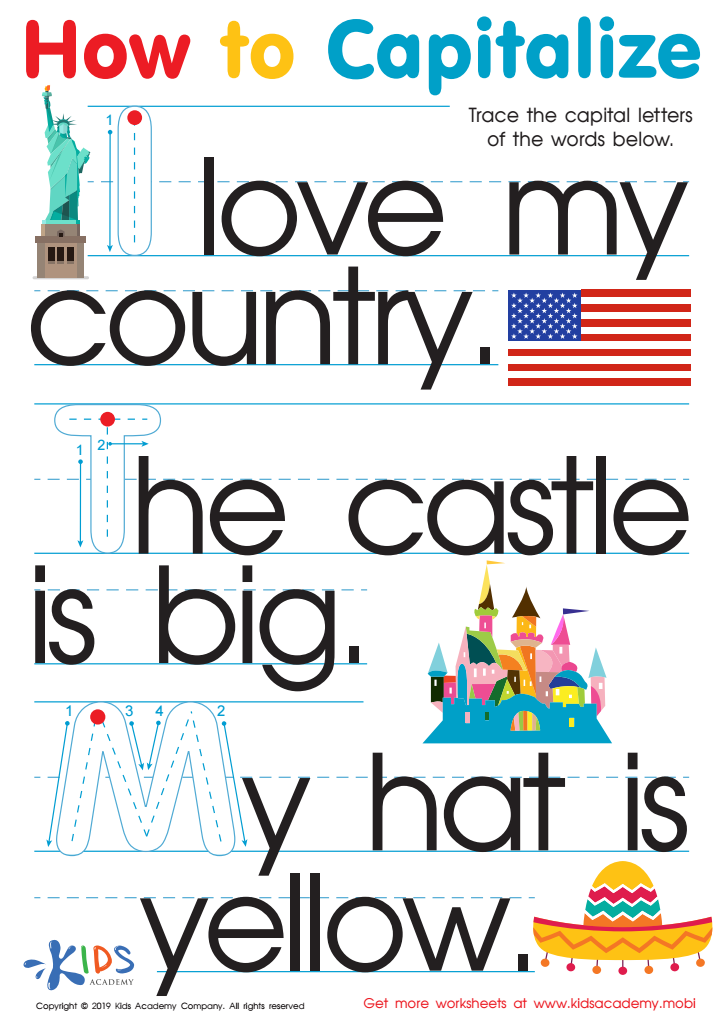Capitalization rules Alphabet Worksheets for Ages 3-4
4 filtered results
-
From - To
Discover our engaging "Capitalization Rules Alphabet Worksheets for Ages 3-4" designed to make learning fun for young children. These vibrant worksheets help preschoolers grasp the basics of capitalization and alphabet recognition through interactive activities and colorful illustrations. Ideal for at-home learning or classroom use, each worksheet involves tracing, matching, and identifying capital and lowercase letters. Foster early literacy and writing skills while delighting your little learners. Visit Kids Academy to download these printable resources and give your child a thrilling head start on their educational journey.


Capitalization. Punctuation. Spelling. Assessment 3 Worksheet


Capitalization Key Worksheet


Fix Capital Letters Worksheet


How to Capitalize Worksheet
Teaching capitalization rules to young children, even as young as ages 3-4, lays the foundation for essential literacy skills. At this tender age, young learners are like sponges, easily absorbing new information and habits. Introducing them to proper capitalization ensures they grasp one of the fundamental building blocks of writing—helping to create disciplined, confident writers as they progress through school.
By incorporating capitalization lessons early, parents and teachers emphasize the importance of structure and rules in language, making it clear from the start that communication is not only about conveying ideas but also about precision and clarity. It fosters an early understanding that some letters hold significance, like the capital letter at the beginning of their name or when starting a sentence, thereby reigniting their sense of identity and self-importance.
Early exposure also bridges the gap to recognizing visual differences in letters, thus enhancing alphabetical knowledge and eye-tracking skills necessary for reading. It supports cognitive development through active engagement, comparison, and categorization of letters, which are key kindergarten readiness skills.
By building enthusiasm for learning and creating a positive initial experience with written language through something as simple as capitalization, parents and teachers instill lifelong respect for the written word, paving the way for academic success.

 Assign to My Students
Assign to My Students


















